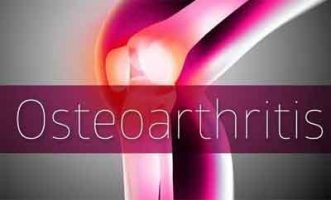- Home
- Editorial
- News
- Practice Guidelines
- Anesthesiology Guidelines
- Cancer Guidelines
- Cardiac Sciences Guidelines
- Critical Care Guidelines
- Dentistry Guidelines
- Dermatology Guidelines
- Diabetes and Endo Guidelines
- Diagnostics Guidelines
- ENT Guidelines
- Featured Practice Guidelines
- Gastroenterology Guidelines
- Geriatrics Guidelines
- Medicine Guidelines
- Nephrology Guidelines
- Neurosciences Guidelines
- Obs and Gynae Guidelines
- Ophthalmology Guidelines
- Orthopaedics Guidelines
- Paediatrics Guidelines
- Psychiatry Guidelines
- Pulmonology Guidelines
- Radiology Guidelines
- Surgery Guidelines
- Urology Guidelines
Tramadol may increase mortality risk in Osteoarthritis Patients

USA: Tramadol is the recommended drug for the for patients with knee osteoarthritis by an American Academy of Orthopaedic Surgeons guideline. However, in stark contrast, a recent study has indicated that the initial prescription of tramadol in patients aged 50 years and older with osteoarthritis is associated with an increased risk of mortality compared with commonly prescribed nonsteroidal anti-inflammatory drugs (NSAIDs), but not compared with codeine.
The drug is also recommended conditionally by an American College of Rheumatology guideline as first-line therapy for patients with knee osteoarthritis, along with NSAIDs.
"These findings may be susceptible to confounding by indication, and further research is needed to determine if this association is causal," authors write in the Journal of the American Medical Association.
Chao Zeng, Department of Orthopaedics, Xiangya Hospital, Central South University, Changsha, Hunan, China, and colleagues in this study set out to find whether tramadol prescription is associated with a higher risk of all-cause mortality than other pain relief medications among patients with osteoarthritis.
To determine the level of risk patients with knee, hip, or hand osteoarthritis face, researchers examined electronic health records from January 2000 to December 2015 on 88,902 patients included in The Health Improvement Network in the United Kingdom. Half received tramadol; other patients received naproxen (12,397), diclofenac (6,512), celecoxib (5,674), etoricoxib (2,946), or codeine (16,922). After propensity score matching, 88 902 patients were included (mean [SD] age, 70.1 [9.5] years; 61.2% were women).
Also Read: Exercise decreases inflammation and prevents cartilage damage in osteoarthritis
They found that:
- During the 1-year follow-up, 278 deaths (23.5/1000 person-years) occurred in the tramadol cohort and 164 (13.8/1000 person-years) occurred in the naproxen cohort (rate difference, 9.7 deaths/1000 person-years), and mortality was higher for tramadol compared with diclofenac (36.2/1000 vs 19.2/1000 person-years).
- Tramadol was also associated with a higher all-cause mortality rate compared with celecoxib (31.2/1000 vs 18.4/1000) and etoricoxib (25.7/1000 vs 12.8/1000 person-years).
- No statistically significant difference in all-cause mortality was observed between tramadol and codeine (32.2/1000 vs 34.6/1000 person-years).
Also Read: Oxaceprol, good alternative to NSAIDs for osteoarthritis patients
These findings could also have clinical impacts, investigators said. If a true cause-and-effect link between tramadol and mortality is unearthed, it could lead to tramadol receiving an unfavorable safety profile.
These results have also led to several strategies that could, potentially, reduce the negative effects associated with analgesic use. For example, co-prescription of proton pump inhibitors with oral NSAIDs has been considered a cost-effective approach to treating osteoarthritis patients with a moderate-to-high gastrointestinal risk.
"Among patients aged 50 years and older with osteoarthritis, initial prescription of tramadol was associated with a significantly higher rate of mortality over 1 year of follow-up compared with commonly prescribed nonsteroidal anti-inflammatory drugs, but not compared with codeine," wrote the authors.
For detailed study log on to doi:10.1001/jama.2019.1347

Disclaimer: This site is primarily intended for healthcare professionals. Any content/information on this website does not replace the advice of medical and/or health professionals and should not be construed as medical/diagnostic advice/endorsement or prescription. Use of this site is subject to our terms of use, privacy policy, advertisement policy. © 2020 Minerva Medical Treatment Pvt Ltd